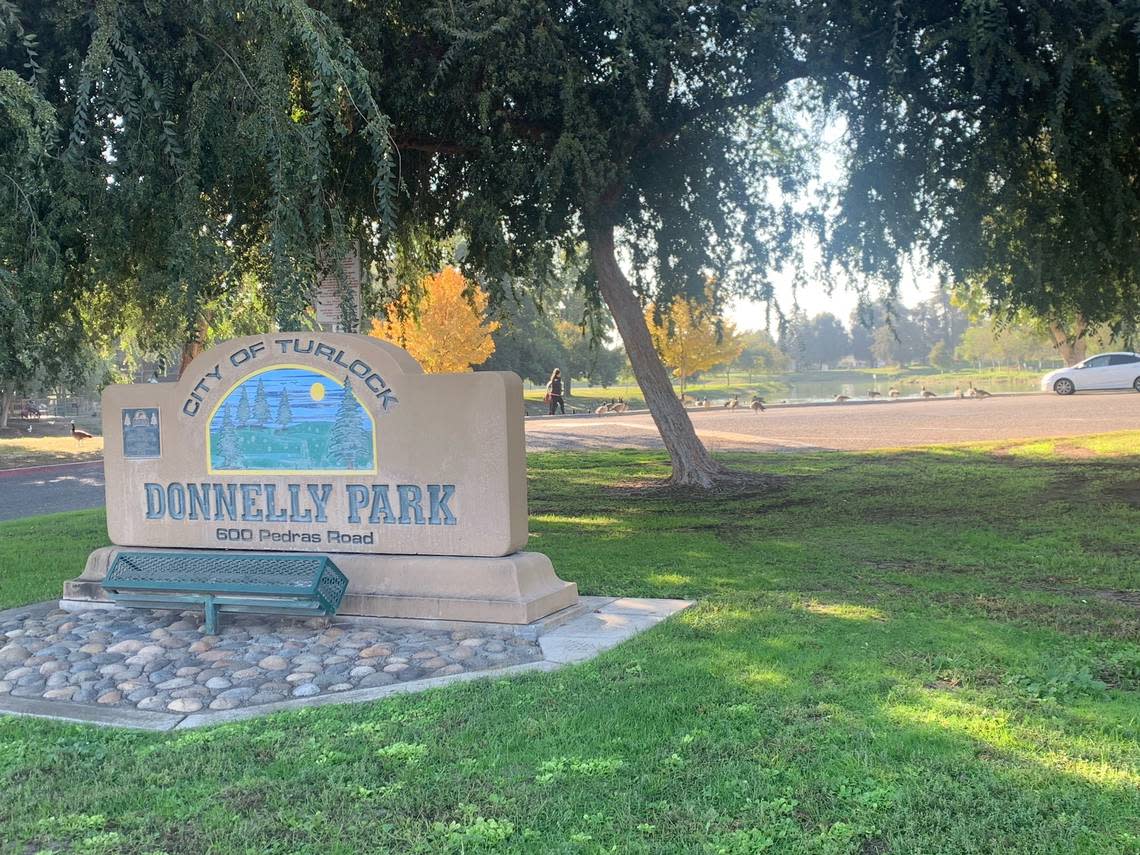In stepped-up effort against crime, Turlock expands security camera use. Where are they?

Residents of Turlock are being watched.
The city of Turlock already uses security cameras to monitor activity in Donnelly and Columbia parks.
Now, the city is doubling down on its approach. On Wednesday, Turlock announced it will add cameras in Broadway, Denair and Central parks.
According to Police Chief Jason Hedden and Mayor Amy Bublak, the new devices will increase public safety, but privacy and First Amendment advocates are not so sure.
The department initially placed the cameras in an effort to stem “ongoing vandalism” at Donnelly Park and to monitor the rehabilitation of the public pool at Columbia Park, Hedden said. He explained that the expansion to three additional parks comes after “residents and business owners expressed concerns with thefts, vandalism of parks, illegal dumping of human waste, etc.”
The new security cameras will monitor activities from 8 p.m. to 8 a.m. through a contracted company and come equipped with a two-way communication feature that allows police to announce themselves over loudspeaker.
“The city has requested the security company to notify law enforcement of activity that equates to serious crimes, such as vandalism, fighting and theft or suspicions of such crimes,” the chief said.
But Brian Hofer, executive director of the Oakland-based nonprofit organization Secure Justice, worries that the technology could be used for other purposes, too. He points out that Immigration and Customs Enforcement (ICE) has used a company called Vigilant to tap into data from cities in order to track down and ultimately detain undocumented immigrants.
The American Civil Liberties Union and the Electronic Frontier Foundation recently settled a lawsuit asserting that Marin County shared data from its license plate cameras with 18 other federal agencies and 424 out-of-state law enforcement agencies. And in Chula Vista, city officials signed a contract that gave Motorola Solutions the ability to commercialize surveillance data from the police.
“If you don’t have a strict, enforceable framework to narrow the use, there’s a potential for abuse,” Hofer said.
Turlock has no policy regarding the use of surveillance technology, but Hedden said its current contract prohibits the surveillance company from selling its information to ICE or another third party (he was unable to provide a copy of the contract to the Bee on short notice).
Hedden said the department would look into footage only in the case of “illegal or suspicious activity and not race, gender, or other categories.”
Overall, the Turlock parks manager has told the Police Department that the cameras at Donnelly and Columbia parks did reduce crime, though the department has not gathered data on the issue.
Hofer questioned the logic. He said cameras might move crime from one corner to another, but they don’t actually reduce it. “It has been historically true for decades internationally that security cameras have no deterrent effect,” he said.
The announcement about surveillance cameras comes on the heels of two community meetings surrounding homelessness in Turlock and the unveiling of a new city website dedicated to the issue.
Hedden did not specify whether the cameras are specifically in response to homelessness. Instead, he pointed out that his office is increasing patrol frequency at city parks and cleaning them two times a day.
“We are increasing enforcement around parks and businesses,” he said. “We are also in the process of developing new ordinances, and revising old ordinances, that will allow us to better address those activities negatively impacting the residents of Turlock.”

